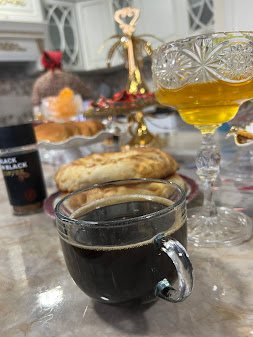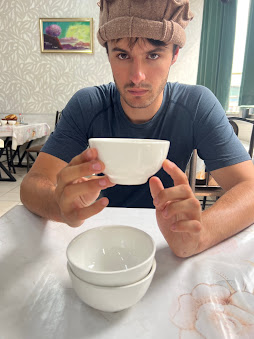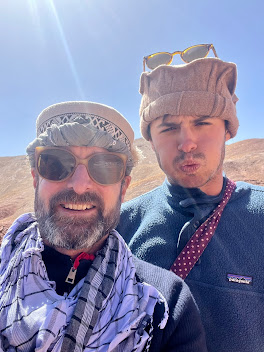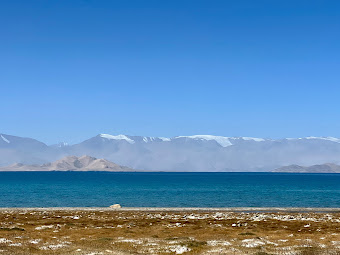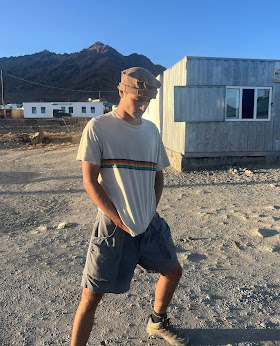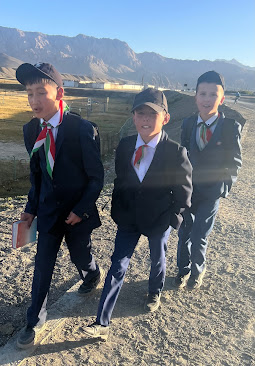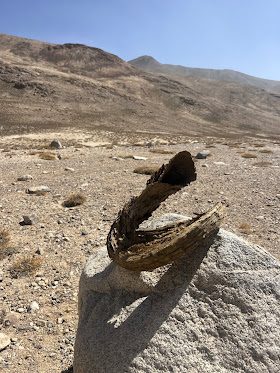Horse Milk 38
In Osh, a payment to our touring agency is required - this one, $1,500. As anticipated we go to the bank for a withdrawal (Mastercard only, no Amex) to find our cards are rejected for dollars - same at the bank with a private banker. The cash is needed to pay for our lodgings, crossings etc so it is not simply solved by a wire transfer from Coutts, which takes five days. The solution found extracting somone currency, which works, only we need c 135,000 of them. The ATM allows a 15,000 somone withdrawal and I already see a day driving to 15 stops. Fortunately, at Eitan's suggestion, I try the same money teller again and a further 15k OK. And another and another and another.
At the wedding we try horse milk (before I know) which is circulated in 2L plastic Coke bottles and received with gusto by the table. It is a thick white colour sprinkled with black dots that look like dirt. The taste is a harsh and sour - I cannot help but think of urine - but what is fantastical is the seasoning which is like drinking smoke. Eitan and I finish half our bowls under pressure to finish it all.

